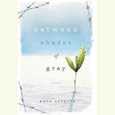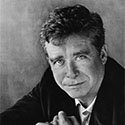As Dusk Comes Down
Charles Wright tells PBS viewers where the poems come from
March 3, 2011 The British critic William Empson believed that the heart of poetry is ambiguity, and his theory may explain why poets are so often loath to “explain” their own poems. Pulitzer Prize-winning poet Charles Wright is a master of the deliberate use of ambiguous language, but in a profile this week on PBS’s NewsHour, he offered a revealing look at his own poetic method:
“Most of my poems start with me looking out the window or sitting in the backyard as dusk comes down, and what that sort of translates into — into my thinking at the moment,” he begins, before reciting a few lines. Later he remarks: “The subject matter will change, what I’m looking at and what I’m thinking about and so on and so forth. But the content, which is language, landscape and the idea of God, particularly the last one, is unchanging, unvarying. And it’s behind all of my poems, even the ones that may not look like it. That’s how poetry has always been for me. It’s been a way of sustaining my questions about life and mortality and all those things that we don’t like to talk about, but they’re always there, you know, knocking on the window.”
Watch the full profile, and read the transcript, here.
After his twenty-seven years in Charlottesville, Virginia may claim Wright as its own, but Tennessee won’t give up the Kingsport native easily. Read Wright’s poem, “On the Night of the First Snow, Thinking About Tennessee,” here.
For more updates on Tennessee authors, please visit Chapter 16‘s News & Notes page, here.

